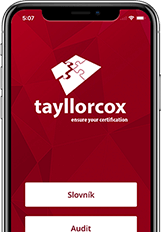 Certified Security Specialist | ECSS
Certified Security Specialist | ECSS
EC-Council Certified Security Specialist (ECSS) is an entry level security program covering the fundamental concepts of information security, computer forensics, and network security. It enables students to identify information security threats which reflect on the security posture of the organization and implement general security controls.
Virtual Training or e-Learning?
We offer flexibility. You can choose from our selection of in-class courses as well as online courses.
Try a live virtual courseTarget Group
EC-Council Certified Security Specialist (ECSS) is an entry level security program covering the fundamental concepts of information security, computer forensics, and network security. It enables students to identify information security threats which reflect on the security posture of the organization and implement general security controls.
- Network security
- Security specialist
- Information security
Course objectives
- Different stages of hacking cycle
- Various network security protocols
- Identification, authentication, and authorization concepts
- Key issues plaguing the information security, network security, and computer forensics
About ECSS
Information security plays a vital role in most organizations. Information security is where information, information processing, and communications are protected against the confidentiality, integrity, and availability of information and information processing.
In communications, information security also covers trustworthy authentication of messages that covers identification of verifying and recording the approval and authorization of information, non-alteration of data, and the non-repudiation of communication or stored data.

Certification
This certification is an excellent complement to educational offerings in the domain of security and networking.
Exam Format
Educational institutions can provide greater value to students by providing them not only with one of the most updated courses available today, but also a certification that empowers students in the corporate world.
- Duration: 2 hours
- Passing Score: 70%
- Number of Questions: 50
- Test Format: Multiple Choice
- Test Delivery: EC-Council Exam Portal
Agenda
Day 1Hide agendaOpen agenda
09:00 – 10:30
Information Security Fundamentals
- Data Breach Statistics
- Data Loss Statistics
10:30 – 10:45
Coffee break
10:45 – 12:15
Networking Fundamentals
- Introduction
- Types of Networks
12:15 – 13:15
Lunch Menu | Oběd
13:15 – 14:45
Secure Network Protocols
- Introduction
- Terminology
Information Security Threats and Attacks
- The Global State of Information Security Survey 2016
14:45 – 15:00
Coffee break
15:00 – 17:00
Social Engineering
- What is Social Engineering?
- Behaviors Vulnerable to Attacks
Day 2Hide agendaOpen agenda
09:00 – 10:30
Hacking Cycle
- What is Hacking?
- Who is a Hacker?
Identification, Authentication, and Authorization
- Identification
- Authentication
- Authorization
10:30 – 10:45
Coffee break
10:45 – 12:15
Cryptography
- Terminology
- Cryptography
12:15 – 13:15
Lunch Menu | Oběd
13:15 – 14:45
Firewalls
- Firewall Technologies
- DMZ
- Proxy Server
14:45 – 15:00
Coffee break
15:00 – 17:00
Intrusion Detection System
- Terminologies
- Intrusion Detection System (IDS)
Day 3Hide agendaOpen agenda
09:00 – 10:30
Data Backup
- Introduction to Data Backup
- Identifying Critical Business Data
10:30 – 10:45
Coffee break
10:45 – 12:15
Virtual Private Network
- What is a VPN?
- VPN Deployment
- Tunneling
12:15 – 13:15
Lunch Menu | Oběd
13:15 – 14:45
Wirless Network Security
- Wireless Networks
- Wireless Terminologies
14:45 – 15:00
Coffee break
15:00 – 17:00
Web Security
- Introduction to Web Applications
- Web Application Components
Ethical Hacking and Pen Testing
- What is Ethical Hacking?
Day 4Hide agendaOpen agenda
09:00 – 10:30
Incident Response
- Common Terminologies
- Data Classification
10:30 – 10:45
Coffee break
10:45 – 12:15
Computer Forensics Fundamentals
- Cyber Crime
12:15 – 13:15
Lunch Menu | Oběd
13:15 – 14:45
Digital Evidence
- Definition of Digital Evidence
14:45 – 15:00
Coffee break
15:00 – 17:00
Understanding File Systems
- Understanding File Systems
- Types of File Systems
Windows Forensics
- Volatile Information
- Non-Volatile Information
Day 5Hide agendaOpen agenda
09:00 – 10:30
Network Forensics and Investigating Network Traffic
- Network Forensics
- Network Forensics Analysis Mechanism
10:30 – 10:45
Coffee break
10:45 – 12:15
Steganography
- What is Steganography?
- Steganography Vs. Cryptography
12:15 – 13:15
Lunch Menu - Oběd
13:15 – 14:45
Analyzing Logs
- Importance of Logs in Forensics
- Computer Security Logs
- Operating System Logs
14:45 – 15:00
Coffee break
15:00 – 17:00
E-mail Crime and Computer Forensics
- Email Terminology
- Email System
Writing Investigation Report
- Computer Forensics Report
This program will give a holistic overview of the key components of information security, computer forensics, and network security. This program provides a solid fundamental knowledge required for a career in information security.
- Block duration 90 minutes
- Hours 40 hours
- Refreshments Yes
- Exam Yes
Graduate ratings
What makes our references exceptional? They are not one-off events. Clients come back to us regularly.
View the full list of reference clients.
Not sure if this is the right courese for you? Get in touch!
For assistance please give us a call.
We are available at +420 222 553 101 Always Monday to Friday: 9am - 5pm.
Cannot call? Send us a message.
Would you like a gift for your birtday?


